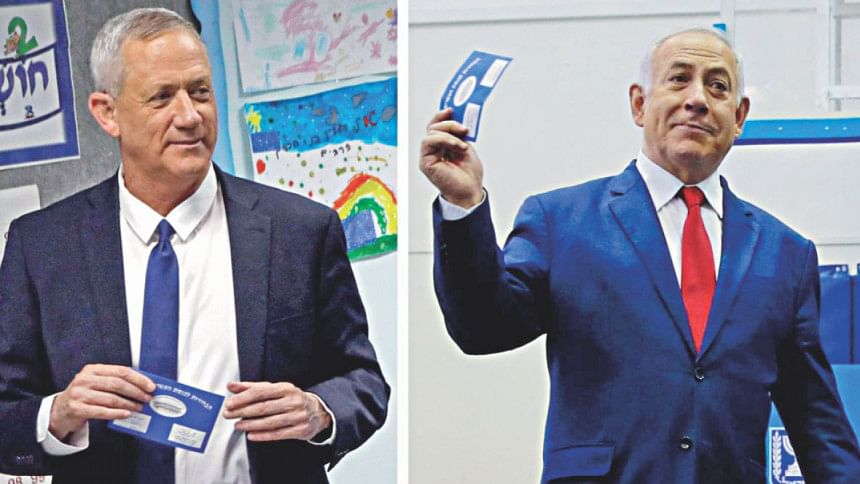Israelis vote in crucial polls

♦ No party has ever won an outright majority in the 120-seat parliament
♦ Vote is expected to be close and likely lead to frantic negotiations to form coalition
Israelis yesterday began voting in an election that could hand right-wing Prime Minister Benjamin Netanyahu a record fifth term or see him dethroned by an ex-general who has pledged clean government and social cohesion.
During the campaign leading up to polling day, the rival parties waged a vitriolic online battle, accusing each other of corruption, fostering bigotry and being soft on security.
Netanyahu's closest rival in the campaign was Benny Gantz, a former chief of the armed forces. Gantz's centrist Blue and White party, which includes other former generals, has challenged Netanyahu's hitherto unrivalled national security credentials.
After an election eve visit to the Western Wall, Netanyahu, 69, voted at a polling station in Jerusalem yesterday morning, accompanied by his wife, Sara.
"This is truly the essence of democracy and we should be blessed with it," he said, shaking hands with election officials and posing for selfies. "With God's help the State of Israel will prevail. Thank you very much. Go to vote."
Casting his vote in Rosh Ha'ayin near Tel Aviv, Gantz, 59, said: "This is a day of hope, a day of unity. I look into everyone's eyes and know that we can connect."
After the election Israel's president, Reuven Rivlin, will consult the leaders of every party represented in the Knesset and select the person he believes has the best chance of forming a government.
Polling stations opened at 7:00 am across the country and will close at 10:00 pm.
But the victor may not be decided immediately. No party has ever won an outright majority in the 120-seat parliament, meaning days or even weeks of coalition negotiations lie ahead, with opinion polls having shown Netanyahu best placed to do so.
One factor may be the turnout of voters from Israel's 21 percent Arab minority. Many were angered by Israel's nation-state law, passed in 2018, which declared that only Jews have the right of self-determination in the country. Netanyahu supported the legislation.
Voting in a predominantly Arab neighbourhood in the northern Israeli city of Haifa, Arab legislator Ayman Odeh, who heads the Hadash party, said that engagement was key to bringing about political changes that would benefit the Arab community.
"We have to vote ... we need to come in droves by train, bus, car and any other way to vote and make a crucial contribution to topple the right-wing government, and especially Benjamin Netanyahu," he said.
"It is very important that Arabs vote for the party that represents their values 100 percent, not 80 or 40 percent like other parties," he said.

 For all latest news, follow The Daily Star's Google News channel.
For all latest news, follow The Daily Star's Google News channel. 



Comments